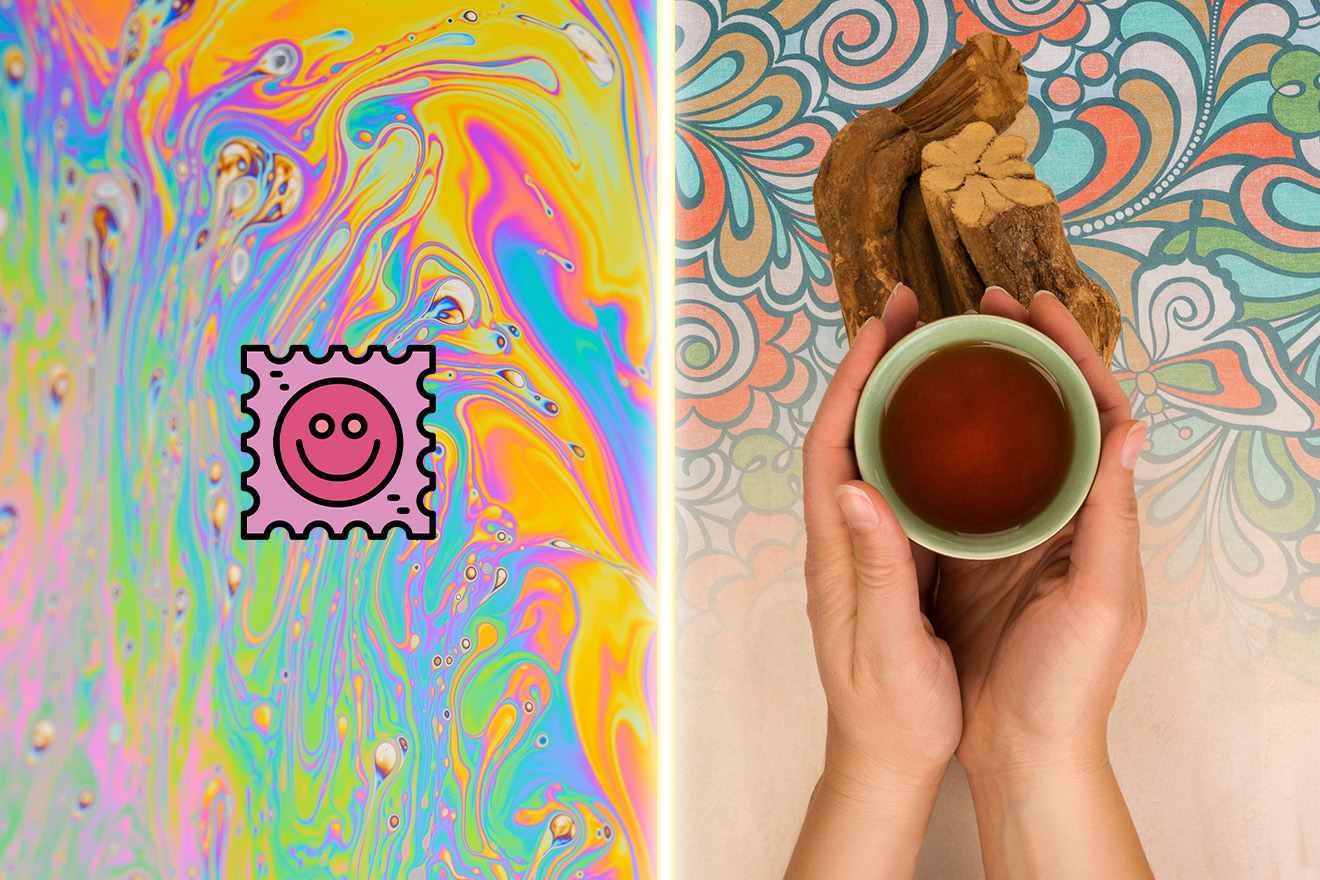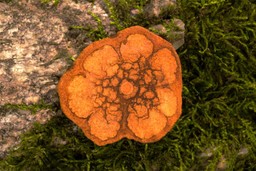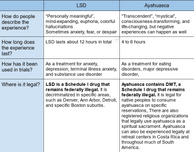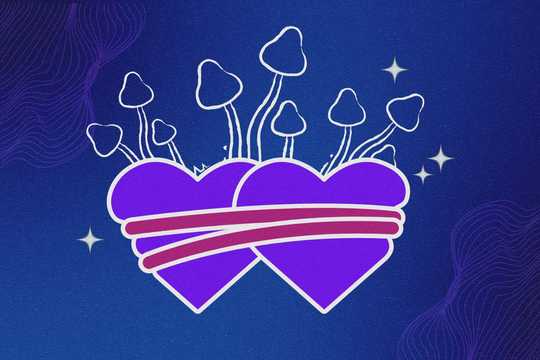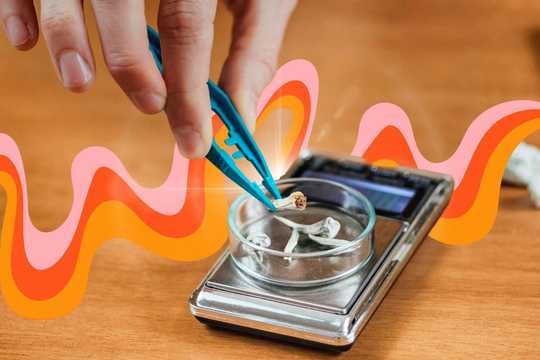Different psychedelic experiences may sound similar to untrained ears. But choosing which substance to use in therapy is complex. Each substance has its distinct benefits. LSD (or Acid) and Ayahuasca are both psychedelic tools that have been useful for improving mental health. Each offers different experiences. Let’s compare the LSD vs Ayahuasca experience in psychedelic therapy.
LSD (sometimes called acid) is a potent psychedelic, originally engineered from a fungus that grows on rye wheat. It typically comes in the form of slim tablets. Since it’s very potent, its therapeutic dosages are low. For the purpose of this article, we’ll be referring to it as LSD instead of acid.
Everyone’s experience of LSD is different – but many people describe it as powerful. People often describe sensory changes under LSD, and its effects can last up to twelve hours.
Follow your Curiosity
Sign up to receive our free psychedelic courses, 45 page eBook, and special offers delivered to your inbox.Ayahuasca is a naturally occurring psychedelic that’s been used by aboriginal communities in the Amazon. Ayahuasca has been found with aboriginal remains dating back over a millennium1. It’s typically consumed via tea and comes from a mixture of two different Amazonian plants. Ayahuasca experiences typically last 4-6 hours and can include hallucinations and sensory effects.
In the last few decades, both of these substances have been studied as adjuncts to evidence-based therapy. Psychedelic-assisted therapy is a new paradigm that includes – therapeutic talk sessions as well as active substance sessions.
This model has helped patients with. . .
- Treatment-resistant depression
- Post-traumatic stress disorder
- Eating disorders
- Substance dependency
- And more
Psychedelic Support is a leader in the movement for evidence-based, patient-centered psychedelic therapy.
We’ve got our eye on changes in legislation and drug development. And we’re always looking to offer our community members more resources. If you’re interested in psychedelic therapy and evaluating substances – how can you know which is right for you?
To compare LSD vs Ayahuasca – let’s first get really clear on:
- Experiences for each substance
- Any side effects they may have
- How they’ve been used in trials and therapy
This may help you find the psychedelic therapy that’s the best fit for your needs.
LSD-Assisted Therapy
People often describe the LSD experience as “trippy,” involving changes to how they perceive colors and sounds. Some people may experience euphoria and find things funnier on LSD, while others may be fearful or anxious. Many people experience all of these emotions2. LSD experiences may be personally meaningful. Many people report lasting positive effects even after the acute psychedelic experience is over.
LSD is thought to help with cognitive flexibility.3 This means that it can make people more suggestible to new ideas and less set in their ways. Most of us have fairly rigid beliefs about ourselves and the world. LSD is thought to help make beliefs more fluid so that people are open to different ways of thinking.
Scholars think that LSD does this by working on specific brain feedback loops – which change how we process information. These loops affect how we think about both internal and external stimuli. This may explain why people associate LSD with changes to colors, sounds, and touch4. This could also explain why people may experience “aha” moments during the LSD experience.
LSD-assisted therapy is not as far along in development as MDMA and psilocybin. It’s been trialed to treat a range of mental and physical problems, including
- Alcohol use disorder
- Depression
- Anxiety
LSD research is ongoing, with exciting results emerging every few months.
Here are some of the most recent findings on LSD-assisted therapy:
- A 2022 trial with 42 participants found that LSD-assisted therapy helped people experience lasting and noticeable decreases in anxiety and depression. These findings are especially strong. This study lasted 16 weeks – with blinding for participants and clinicians, controlling for placebo, and crossover design5.
- A 2022 systematic review found that results of LSD trials on alcohol-use disorder are mixed but promising6.
- A 2022 article posits that LSD and other classic psychedelics may be especially helpful for people with anxiety related to terminal illness. These substances could help people integrate their fears and live more easily in the last days of their lives7.
- Clinical trials are yet to come, but one 2020 research review showed that LSD may be an effective treatment for Alzheimer’s dementia8.
LSD is a fascinating substance. Research is ongoing into how we can use it to help people in therapy. Let’s talk about Ayahuasca-assisted therapy as an experience and its indications as a mental health treatment.
Ayahuasca-Assisted Therapy
People have described the Ayahuasca experience as “transcendent” and “mystical”. A large part of the spiritual experience around Ayahuasca is a transformation in consciousness. Many people report that Ayahuasca has a life-changing effect on them9. One report even found that people can have such a profound experience from Ayahuasca that they feel like they’re no longer the same person10.
As with LSD, “bad trips” are also possible in Ayahuasca sessions. Unpleasant physical side effects are more common with Ayahuasca. People tend to experience abdominal discomfort, vomiting, and diarrhea. These symptoms are so common that there’s a name for them: “purging”. This happens because of Ayahuasca’s action on serotonin, which activates the brainstem to trigger vomiting.
Ayahuasca typically contains another psychedelic you may have heard of: DMT. This molecule (N, N-dimethyltryptamine) is a powerful substance sometimes called “the spirit molecule”. It’s found in several animals and plants – and is also produced in the human body. Some researchers theorize that this powerful molecule causes survivors of near-death experiences to report feelings of transcendence11.
DMT is very powerful, but 5-Me0-DMT is 4 -10 times more potent. Read about it here.
Research into Ayahuasca as a mental health treatment has been slower. Ayahuasca is earlier in research and development than LSD and other psychedelics. But it’s shown promising results in a few specific areas.
Check out these trials using Ayahuasca-assisted therapy:
- A 2021 open-label trial found that after just one dose of Ayahuasca, people with major depressive disorder had markedly less suicidal ideation12.
- A 2020 review found that Ayahuasca could be a beneficial treatment for eating disorders13.
- A 2016 paper in Frontiers in Pharmacology posited that Ayahuasca could be helpful for substance use disorder, PTSD, and degenerative diseases.
Even though there’s currently less clinical evidence for Ayahuasca – research is ongoing. We’re excited to learn more about this ancient substance, and how it can be best used to help people in therapy14.
Comparing the LSD vs Ayahuasca Experience: Check out our Table
Need a direct comparison? Here’s our table comparing LSD va Ayahuasca:
Now that you’ve compared LSD vs Ayahuasca, let’s talk about how to decide which substance to pursue in therapy.
Which Substance is Right for You? LSD vs Ayahuasca
Many psychedelic explorers and therapists have a substance that they prefer to use for therapeutic benefits. Depending on your specific needs, one or the other may be better for you. Some of this answer may also depend on accessibility since both of these substances are currently illegal in the United States.
For example, Ayahuasca may be more appropriate if you’re seeking treatment for an eating disorder. On the other hand, LSD has shown benefits for people with life-threatening illnesses.
If you’re interested in comparing LSD with other substances, we’ve got guides on LSD vs. psilocybin and comparing MDMA with LSD.
Speaking with a professional therapist is the first step in psychedelic-assisted therapy. Still unsure about which substance you should use in therapy? A psychedelic psychiatrist can evaluate your symptoms and make a recommendation.
We have an extensive network of therapists and medical professionals ready to consult with you on this important decision. Visit our professional network to find a professional psychedelic therapist near you.
References
- Yasmin Anwar, M. R. M. 6, & Anwar, Y. (2019, May 16). Ayahuasca fixings found in 1,000-year-old Andean Sacred Bundle. Berkeley News. Retrieved December 7, 2022, from https://news.berkeley.edu/2019/05/06/ayahuasca-sacred-bundle/
- Hwang KAJ, Saadabadi A. Lysergic Acid Diethylamide (LSD) [Updated 2022 Jul 11]. In: StatPearls [Internet]. Treasure Island (FL): StatPearls Publishing; 2022 Jan-. Available from: https://www.ncbi.nlm.nih.gov/books/NBK482407/
- Schmid Y, Liechti ME. Long-lasting subjective effects of LSD in normal subjects. Psychopharmacology (Berl). 2018 Feb;235(2):535-545. doi: 10.1007/s00213-017-4733-3. Epub 2017 Sep 16. PMID: 28918441; PMCID: PMC5813062.
- Preller KH, Razi A, Zeidman P, Stämpfli P, Friston KJ, Vollenweider FX. Effective connectivity changes in LSD-induced altered states of consciousness in humans. Proc Natl Acad Sci U S A. 2019 Feb 12;116(7):2743-2748. doi: 10.1073/pnas.1815129116. Epub 2019 Jan 28. PMID: 30692255; PMCID: PMC6377471.
- Holze, F., Gasser, P., Müller, F., Dolder, P. C., & Liechti, M. E. (2022). Lysergic acid diethylamide–assisted therapy in patients with anxiety with and without a life-threatening illness: A randomized, double-blind, placebo-controlled phase II study. Biological Psychiatry. https://doi.org/10.1016/j.biopsych.2022.08.025
- Calleja, Conde, J., Morales, García, J. A., Echeverry, Alzate, V., Bühler, K. M., Giné, E., & López, Moreno, J. A. (2022). Classic psychedelics and Alcohol Use Disorders: A systematic review of human and Animal Studies. Addiction Biology, 27(6). https://doi.org/10.1111/adb.13229
- Garcia, A. C., & Maia, L. de. (2022). The therapeutic potential of psychedelic substances in hospice and Palliative Care. Progress in Palliative Care, 30(1), 1–3. https://doi.org/10.1080/09699260.2022.2001140
- Vann Jones, S. A., & O’Kelly, A. (2020). Psychedelics as a treatment for Alzheimer’s disease dementia. Frontiers in Synaptic Neuroscience, 12. https://doi.org/10.3389/fnsyn.2020.00034
- Krippner, S., & Sulla, J. (2000). Identifying Spiritual Content in Reports From Ayahuasca Sessions. The International Journal of Transpersonal Studies.
- Shannon, B. (2002). The Antipodes of the Mind: Charting the Phenomenology of the Ayahuasca Experience. Oxford University Press.
- Timmermann, C., Roseman, L., Williams, L., Erritzoe, D., Martial, C., Cassol, H., Laureys, S., Nutt, D., & Carhart-Harris, R. (2018). DMT models the near-death experience. Frontiers in Psychology, 9. https://doi.org/10.3389/fpsyg.2018.01424
- Zeifman, R.J., Singhal, N., dos Santos, R.G. et al. Rapid and sustained decreases in suicidality following a single dose of ayahuasca among individuals with recurrent major depressive disorder: results from an open-label trial. Psychopharmacology 238, 453–459 (2021). https://doi.org/10.1007/s00213-020-05692-9
- enelli M, Fletcher J, Tupper KW, Files N, Loizaga-Velder A, Lafrance A. An exploratory study of experiences with conventional eating disorder treatment and ceremonial ayahuasca for the healing of eating disorders. Eat Weight Disord. 2020 Apr;25(2):437-444. doi: 10.1007/s40519-018-0619-6. Epub 2018 Nov 24. PMID: 30474794.
- Frecska E, Bokor P, Winkelman M. The Therapeutic Potentials of Ayahuasca: Possible Effects against Various Diseases of Civilization. Front Pharmacol. 2016 Mar 2;7:35. doi: 10.3389/fphar.2016.00035. PMID: 26973523; PMCID: PMC4773875.
